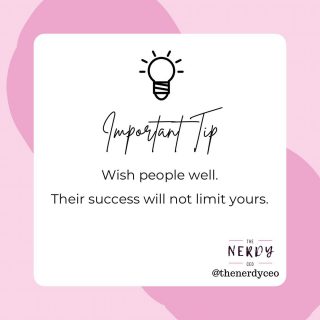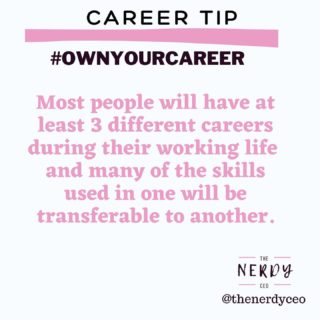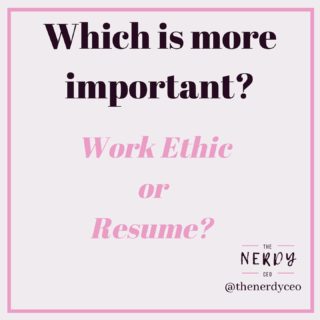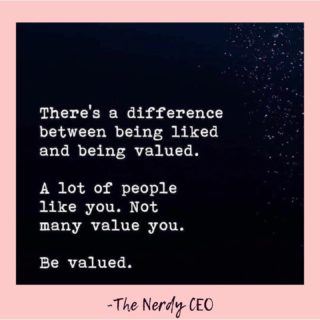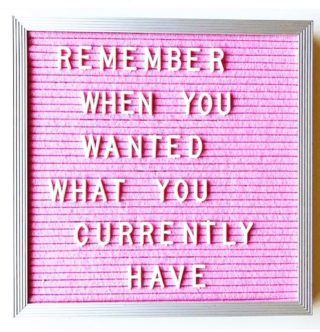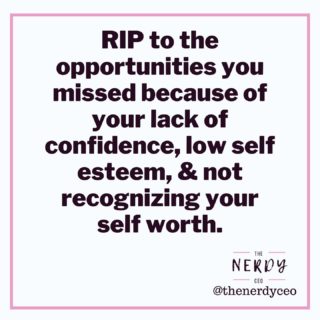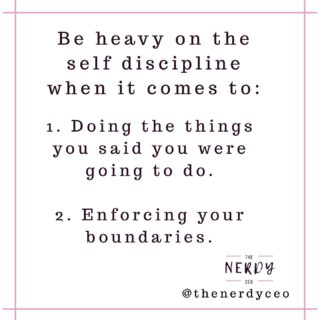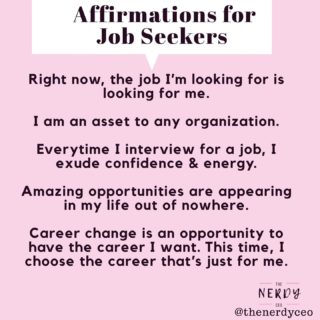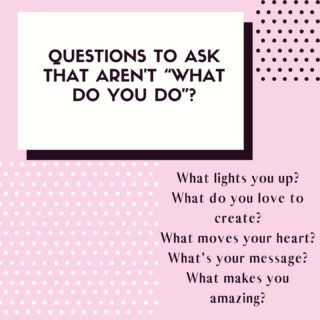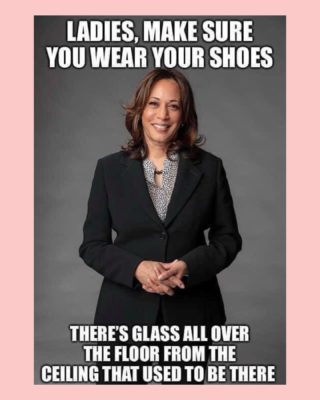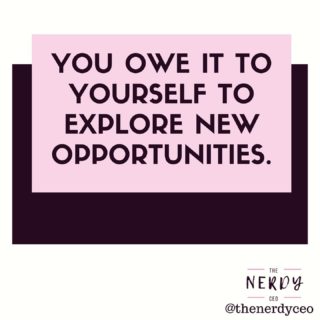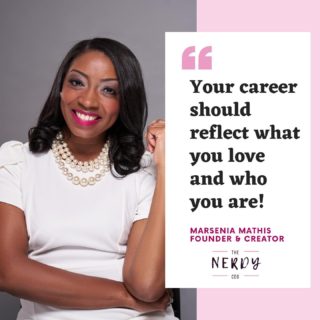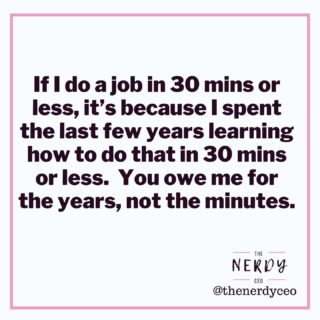Ever felt stuck in a job to where you weren't reaching your full potential? You have a purpose and a calling in your career. We were all born to do something. No-one else can figure out your purpose for you, but you have to do the work. Here I'm sharing some career tips that have helped me along my career path that I hope can help you along your way as well.
How to Attract the Career You Want
We’ve been quite busy here at The Nerdy CEO and lately, I’ve been reflecting a lot on how I can help more of you find career fulfillment.
Just within the past few months, I’ve had several discussions with some family members, close friends, and colleagues (including supervisors) and our main topic of discussions were getting promotions, how to ask for more, flexibility in the work place, and even how to start a business.
Recently I asked you on my social feeds what were some personal goals you were currently working on. For me, I’ve been concentrating on “self-care” and strategizing on how to help those of you in the latter of corporate. I believe it is crucial to understand yourself, your goals, and your calling first in your career transition or business start-up process. This is why I’m dedicating this blog post in helping you find a seamless career path whether that be as an employee or as an entrepreneur. I’m creating this specifically with your success in mind. Also, keep in mind I’m sharing tips and advice based on my very own personal experiences that hopefully can help you on your journey to success.
Some of the tips includes:
1. Knowing the Difference between a Resume and a Curriculum Vitae (CV)
2. Tailoring Your Resume to Fit a Particular Job You’re Applying For
3. Cover Letter or not?
4. Interview Tips
5. How to Negotiate a Salary
6. How to Make A Good First Impression
7. How Nice is “Too Nice” in the Workplace
8. Is it a matter of WHO you know vs. WHAT you know
9. Staying Positive & Optimistic When Job Searching
10. How to Dress for Success
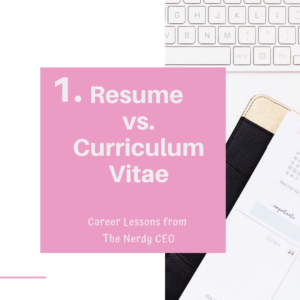
For those of you that are employees and seeking career opportunities, let’s talk about resumes and CVs. Many of you may already know but some don’t. There are three major differences between CVs and resumes and they are the length, the purpose and the layout. A resume is a brief summary of your skills and experience over one or two pages, a CV is more detailed and can stretch well beyond two pages.
Back in the day some of us were taught to have 1-2 page resumes because employers skim briefly. But let’s be honest, if you have 10+years of professional experience, do you think 1-2 pages is enough to showcase your talents and skillsets? Make sure your resume or CV showcase all of your qualifications.
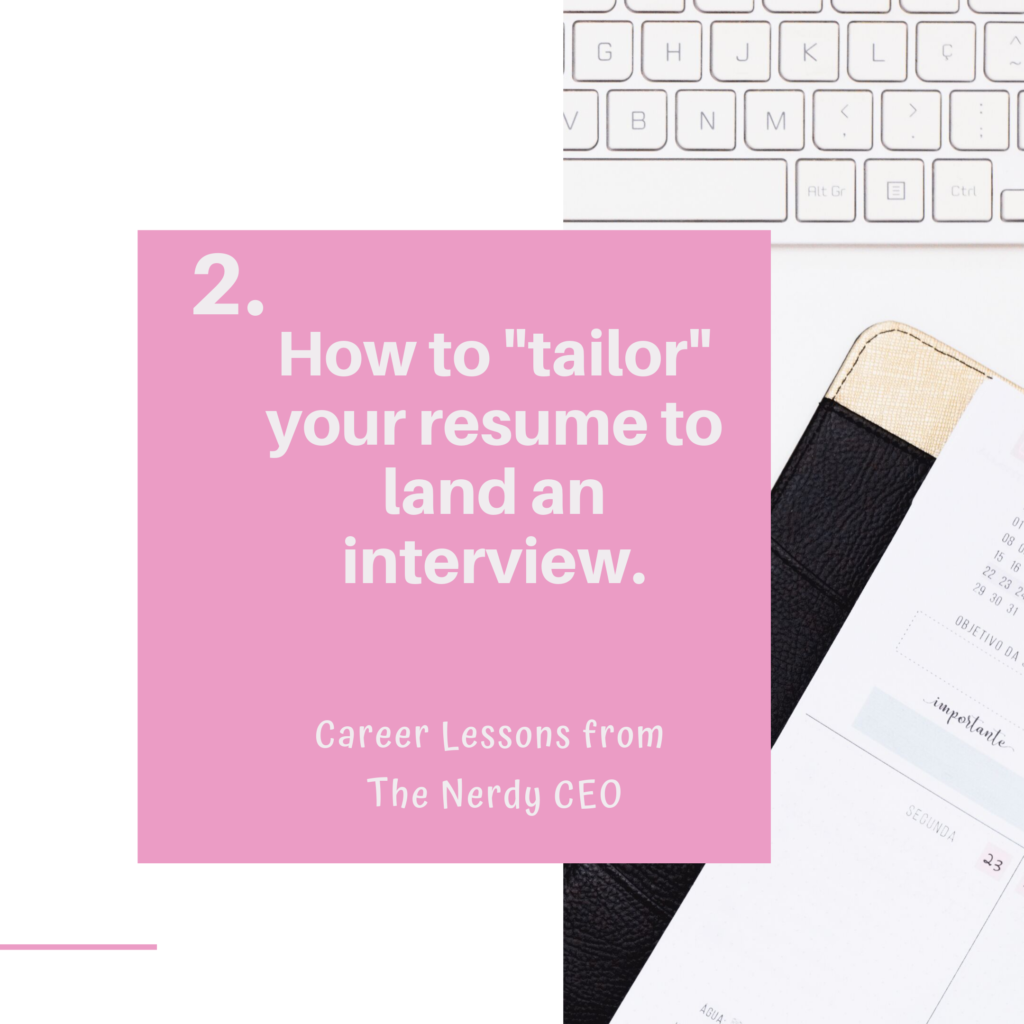
Tailoring your resume to a job description is a must. And it’s the one piece of advice I can personally give based on my experiences to rule them all. You’re probably wondering- Is it really necessary???YES IT IS. Will it take some time to do especially if you’re applying to multiple positions? Of course. But it really will make a huge difference in the number of companies that call you back and invite you to interview.
By tailoring your resume to the job description, you signal to the hiring manager that your resume is relevant and that you’re the right person for the job. When you create a general resume with the goal of showing all of your impressive experience, what you are doing is not in line with what the company is checking for. There’s a disconnect, and this causes a lack of callbacks. Employers want to see evidence that you can come in and perform well from day 1.
When you a tailor a resume to a specific job, it becomes about THEM. And that’s how you get the interview.
A cover letter is important for 3 things:
1. It explains how you will bring value to the company.
2. It touches on what’s most important to the hiring manager.
3. Cover letters give you the opportunity to add more details about information mentioned on your resume that can help differentiate you from other qualified candidates.
Similar to your resume/CV, each cover letter should be tailored to the individual job ad. You don’t have to start from scratch every time, but you should adjust the content to best reflect what makes you an ideal candidate for the position at hand.
So, should you write a cover letter? YES!!! Ask yourself, what can you do to take yours to the next level?

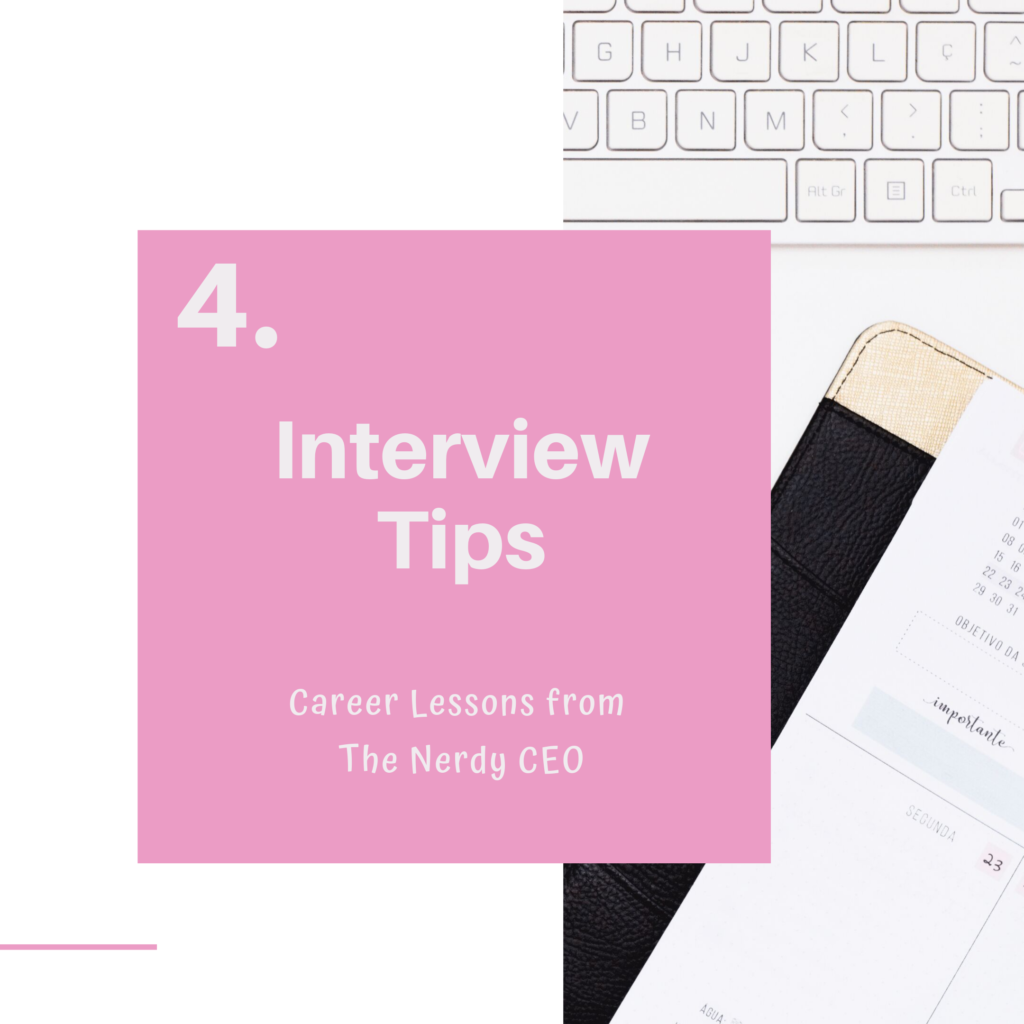
So you have an interview but you’re pretty nervous about it because it’s the job you’ve been working towards and you want to nail it leaving a lasting impression with the interviewer/employer. There is much to think about when interviewing for your next opportunity. Here are 4 tips to jumpstart your preparation for a successful interview:
1. Selling your Skills and Abilities. Though this point may sound obvious, selling yourself is something that many find an uncomfortable task. Remember, the interview is your chance to demonstrate why you’re the best candidate for the job. Identify 3 skills/experiences that demonstrate your expertise and value to the organization. You should know your CV and the job description inside out. Use these documents to guide you through the interview, and pick examples of your experience or education that demonstrate why you’d be successful in the role.
2. Ask your interviewer insightful questions. Research the employer prior to your interview. You should have prepared some questions before the interview. Whether it’s about the company or the position itself, asking questions about measuring future success and what’s expected in the new position will show you’re a forward thinker and keen to contribute to the success of the company.
3. Be Yourself. If you are hired based on an interview in which you acted rather than being yourself, your new employer is going to expect that you continue to act that way on the job. Acting like someone you are not is tiring, which can undermine your ability to perform. Be you from the start. The only way you will know it is a good fit is if you are your authentic self. Make sure you can bring your whole self to work to ensure that you can be most effective in your new role.
4. End your interview on a positive note. Find out what the next steps are and when you can expect to hear back on the outcome of the interview. Be sure to thank them for taking the time to meet with you and tell them that you look forward to hearing from them soon. If you’d like, you can follow the interview up with a phone call or an email.

Did you know that more than 50 percent of people have never negotiated a salary? If you’re shocked by this statistic and feel you might be part of that majority, it’s time to act.
There’s a fine line between pricing yourself out of the market which can lead to the employer not getting back to you because of it or lowballing yourself unintentionally and not having much leverage to then re-negotiate. Based on my previous experiences, here are 5 key negotiating salary tips that can work for you.
1. Know your worth.
When it comes to negotiating salary, what it really comes down to is understanding that your employer or potential employer is not doing you a favor or giving you a leg up. They are paying you based on your skills and what they believe you will contribute to the company. When you negotiate salary, you’re not just negotiating the number that will appear on your next paycheck, you’re also determining how much you’ll be earning next year, and the year after that.
2. Management
Everyone should negotiate their salary, but if you’re in a managerial position of any kind, this applies to you. Having the responsibility of managing others alone can be excellent leverage for you in a negotiation situation.
3. Know your realistic salary in the job market. The last thing you need to know before you negotiate is your number. You don’t want to go in and ask for too much or regret it later by accepting a low offer. Keep this number in your head as you go into your negotiations and remember that by going into the situation with data instead of emotion, you have the power to negotiate anything. As long as you’re not asking for an unrealistic amount, no reasonable employer will pull an offer.
4. Don’t disclose your current or desired salary.
The most common question recruiters/supervisors will ask a candidate is something like, “So where are you right now in terms of salary, and what are you looking for if you make this move?” Don’t fall for it. Answering this question by disclosing numbers can make it very difficult to negotiate effectively later on because it can box you in. Instead, you can say, you’re not comfortable sharing your current salary and that you would prefer to focus on the value you will add to the company rather than what you’re paid at your current job. You can also state what your desired amount is if you have a specific number in mind. The worst that could happen is they tell you NO. Bottom line is you want your next move to be a big step forward in terms of both responsibility and compensation and don’t forget job fulfillment.
5. How to ask for more.
One of the biggest misconceptions with salary negotiation is that there are things, other than salary, which are negotiable. Things like PTO, 401k, and working from home privileges are all benefits that you have the power to negotiate to your advantage. All you have to do is ask. Thinking about starting a family? Perhaps you should request an extended maternity leave. Live far away with a terrible commute? Ask if you can work from home part of the week.

In the first few seconds of meeting you, an interviewer will make a judgement, so it’s important to make sure it’s a positive first impression.
- Arrive on Time, but Not Too Early. Arriving 15 to 20 minutes before your scheduled interview is acceptable.
- Offer a firm handshake. When you first meet with the interviewer, smile confidently and shake their hand.
- Be prepared to talk about the company and yourself. Doing your homework and finding out all there is to know about the company is essential when preparing for an interview.
- Project Confidence….Body language as well as appearance speaks much louder than words. Use your body language to project self-assurance. Stand tall and make eye contact. Good manners together with polite, attentive, and enthusiastic behavior help make a good first impression.

Being nice and taking on additional tasks will make you seem more valuable to your company, right? Most people in the workplace want to be as helpful as possible and are willing to go the extra mile to add value to their organizations, especially if they’re a new employee. But know there is a fine line between being friendly and helpful and being to nice and never saying NO to your boss or colleagues.
Being too nice can be a total disadvantage if you don’t set boundaries at work and can even have undesirable consequences for your work life some of which may include you not being compensated for your hard work, you get taken advantage of, you get overlooked, and you can get additional tasks dumped on your plate. Don’t fall victim to the nice role. My advice is to offer help when you can but make sure your employer understands that your time and effort is valuable.
It seems like growing up so much emphasis was placed on building “What We Know,” by our parents and teachers but they rarely touched on the importance of building “Who We Know.” Why did they put so much focus on us learning, rather than building connections and a network?
Don’t get me wrong, “what we know” is still very important. The more we learn in school and through our life experiences, the better. But networking is highly important as well. I’ve heard some say networking can get you into doors your degree(s) can’t. Do you agree?
Even though a person may not have the technical knowledge and experience under his or her belt like yourself, if he or she has the right connections it may not matter. This is a disheartening fact, but also a reality check. Build your network. Introduce yourself to new people. Communicate effectively with others. And when you find yourself in the “Who You Know” vs. “What You Know” situation, the “who you know” just may get you through that door you’ve been waiting on stepping through.

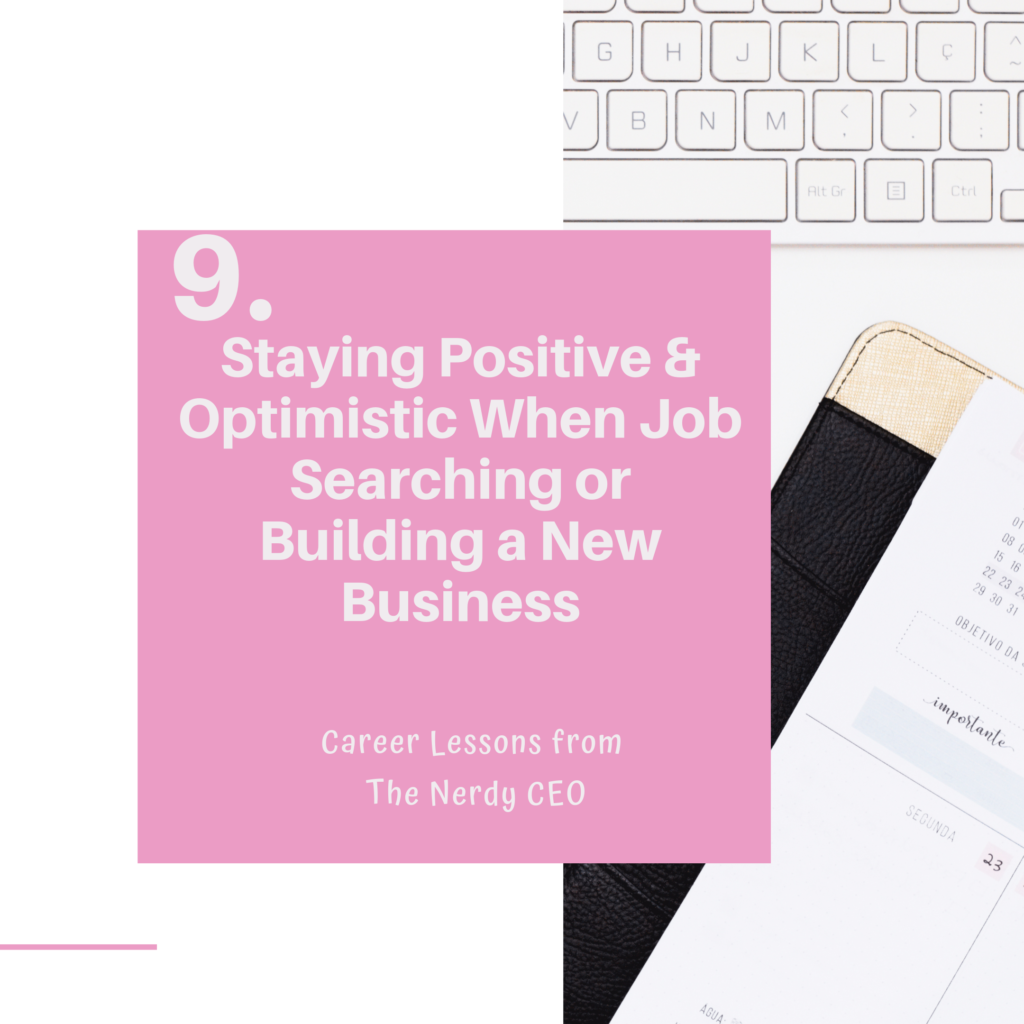
Its so easy to get caught up in the job searching process and become negative towards everything after getting rejected repeatedly. Similarly, when building a business and not getting the traction you want. So you become defeated and frustrated. You’re worried about the future and what you’re going to do, but it is important to remain positive throughout the entire process.
I can’t tell you the number of times I’ve felt like throwing in the towel. However, I always remind myself that nothing worth having comes easy. When you’re chasing a big goal…the kind that takes months or years to accomplish, some of your biggest enemies will be complacency, self-doubt, and fear.
Set yourself up for daily progress with productive habits. Each week make a list of goals you would like to accomplish and focus on making small goals rather than large ones. Celebrate your small wins….small wins lead to big results.
Being out of work can be stressful and hard to stay positive at times but keep your chin up, head held high, and move forward each day with a positive mindset. You will get through this tough time and when you least expect it, the perfect opportunity will come up.

To be successful in your career, it is very important to set yourself some short-term and long-term goals and career objectives. Trust me, it’s not as complicated as it sounds. But if you have a plan set in place, by setting yourself clear goals, it can highly improve your job satisfaction at work as well as your career progression.
Benjamin Franklin once said, “If you fail to plan, you are planning to fail”. Think about what your next career move is and where you see yourself in the next five years.






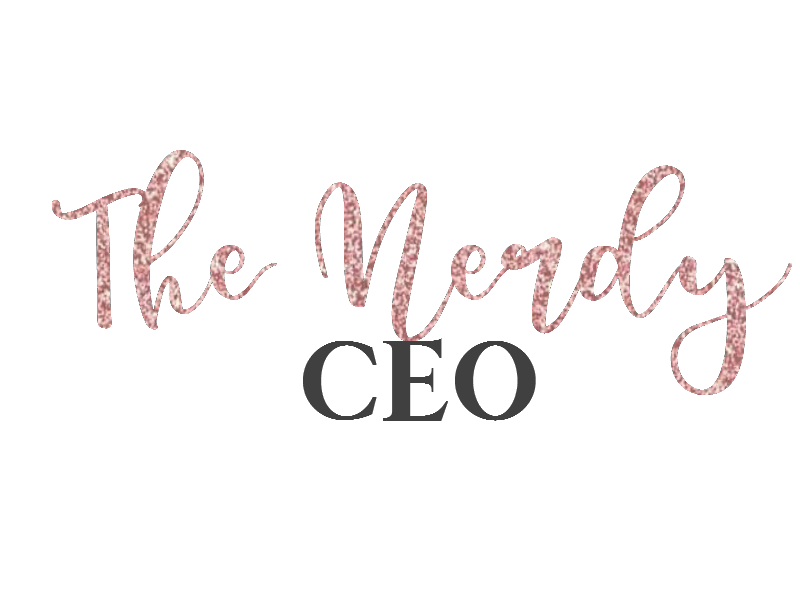





